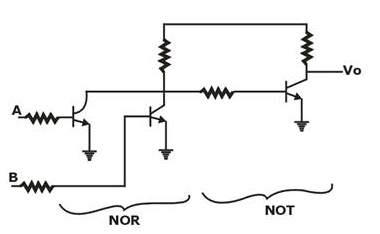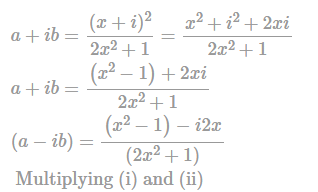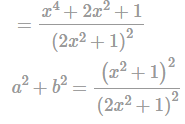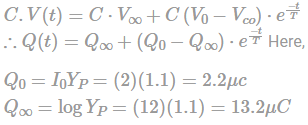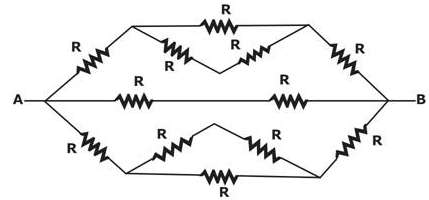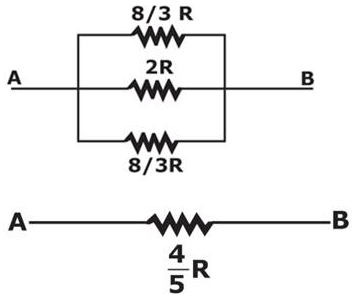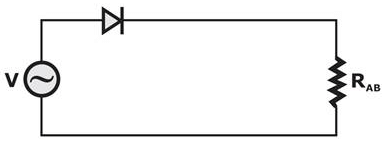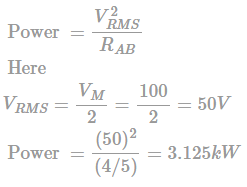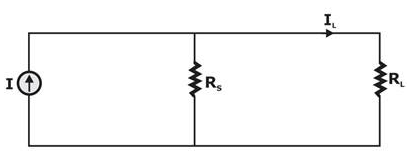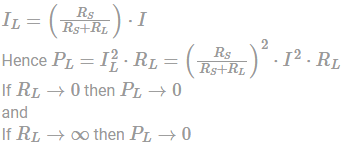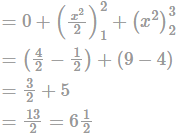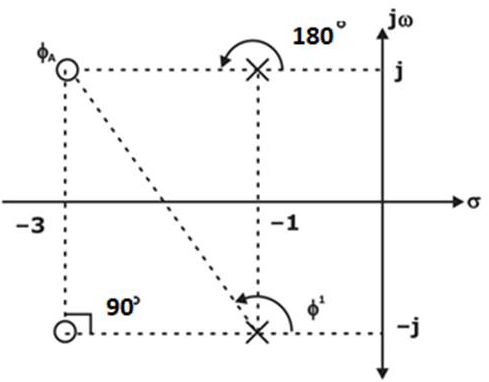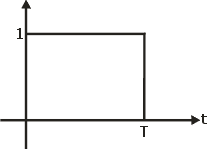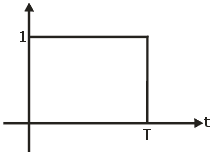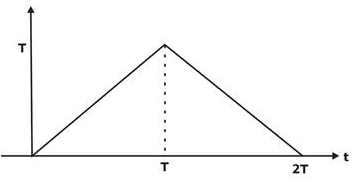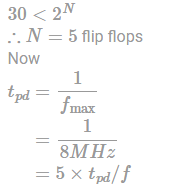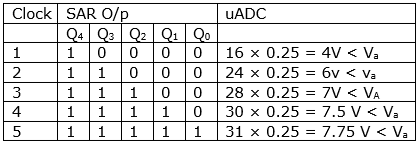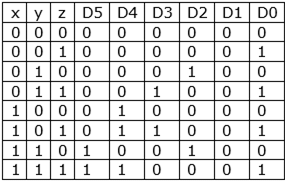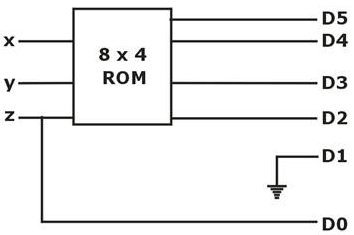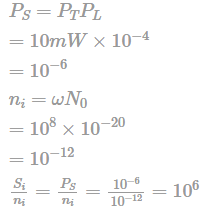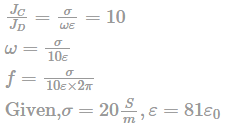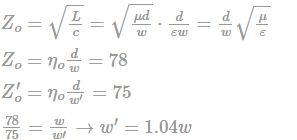Practice Test: Electronics Engineering (ECE)- 2 - Electronics and Communication Engineering (ECE) MCQ
30 Questions MCQ Test GATE ECE (Electronics) Mock Test Series 2026 - Practice Test: Electronics Engineering (ECE)- 2
A lent Rs. 5000 to B for 2 years and Rs. 3000 to C for 4 years on simple interest at the same rate of interest and received Rs. 2200 in total from both as interest. The rate of interest per annum is.
Amit rows a boat 9 kilometres in 2 hours down-stream and returns upstream in 6 hours. The speed of the boat (in kmph) is:
The sentences given with blanks are to be filled with an appropriate word(s). Four alternatives are suggested for each question. For each question, choose the correct alternative and click the button corresponding to it.
They abandoned their comrades ______the wolves.
In the following question, out of the four alternatives, select the word opposite in meaning to the given word.
Turgid
Direction: Study the following information carefully and answer the given questions:
The following pie chart shows the percentage distribution of total number of Apples (Dry + Wet) sold in different days of a week :
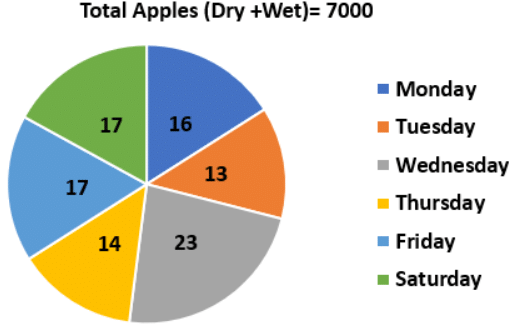
The pie chart 2 shows the percentage distribution of total number of Apples (Wet) sold in different days of a week.
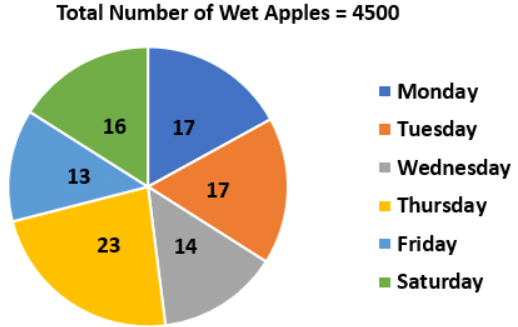
Find the ratio of Apples (Dry + Wet) sold on Tuesday to that of the Apples (Wet) sold on Thursday?
Directions: In each of the questions below, some statements are given followed by some conclusions. You have to consider the statements to be true even if they seem to be at variance with commonly known facts. You have to decide which of the following conclusions logically follows from the given statements. Give answer.
Statements:
Some jacket is shirt.
Some shirts are trouser.
No shoes are t-shirt.
All trousers are shoes.
All pants are t-shirt.
Conclusions:
I. All shirts being t-shirt is a possibility.
II. Some shoes are trouser.
III. Some jackets are t-shirt.
IV. Some shirts being t-shirt is a possibility.
The question below consists of a set of labelled sentences. These sentences, when properly sequenced form a coherent paragraph. Select the most logical order of sentences from among the options.
P: July 1969 was to see a transformed Indira Gandhi.
Q: Quite a few people contributed with ideas.
R: She sounded the bugle through her historic ‘Note on Economic Policy and Programme’ that was circulated among delegates at Bangalore on July 9, 1969.
S: But the pivot was P.N.Haksar who gave shape, structure and substance with the help of some of his colleagues in the Prime Minister’s Secretariat.
Direction: Which of the following is the MOST SIMILAR in meaning to the given word?
Remnant
Direction: Read the information carefully and give the answer of the following questions:
Total number of children = 2000
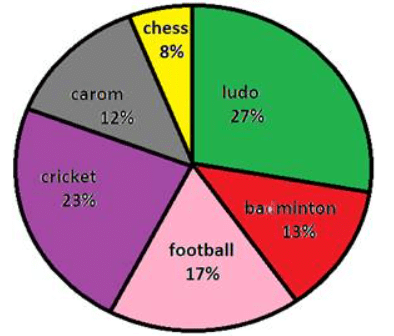
If two-ninths of the children who play football are females, then the number of male football children is approximately what percent of the total number of children who play cricket?
Direction: Study the following information carefully and answer the given questions.
Seven people, P, Q, R, S, T, W and X sitting in a straight line facing north, not necessarily in the same order. R sits at one of the extreme ends of the line. T has as many people sitting on his right, as on his left. S sits third to the left of X. Q sits on the immediate left of W. Q does not sit at any of the extreme ends of the line.
If all the people are made to sit in alphabetical order from right to left, the positions of how many people will remain unchanged?
The figure shows the circuit of a gate in the resistor transistor logic (RTL) Then the circuit represent which gate?
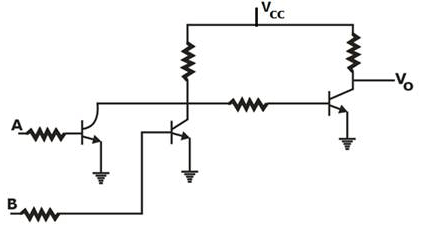
For the given p+ -n junction diode the minority carrier life time in the n -region is ΥP = 1.1 μsec. If the excess minority charges present in the n -region at any time t is given as QP(t) then QP(t) at t = 1.5 μsec is _____ μC?
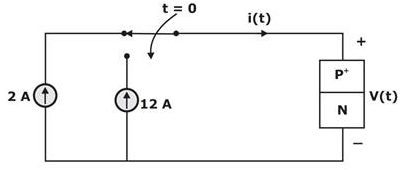
For the given network, the power given to the load is ____ kW? [Assume R =1 Ω and ideal diode]
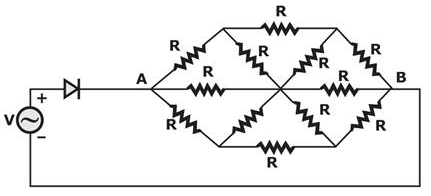
V = 100. sinωt
A current source with an internal resistance of RS, supplied power to load RL. The plot of power delivered as a function of load RL is?
 where (x) denotes greatest integer
where (x) denotes greatest integer
For given system
 Angle of arrival is?
Angle of arrival is?
A square wave with frequency = 5 kHz
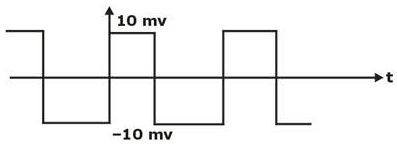
This signal is passed through an ideal low-pass filter with 0 dB of passband gain and 10 kHz of cut-off frequency. The filtered signal is subsequently buried additively into a zero-mean noise processed with one-sided power spectral density (PSD) of 20 nW Hz–1. Upto a frequency of 2.5 MHz. The PSD of noise is zero beyond 2.5 MHz. The signal to noise ratio of the output is _______dB.
For a MOD -30 ripple counter, the maximum operating frequency is 8 MHz. The propagation delay of each flip flop must be _________nsec?
For a successive approximation type of ADC shown.
If Va = 8V and resolution of D/A = 0.25 volt
Then the error voltage between Va and SAR output at 5th clock is_______volt?
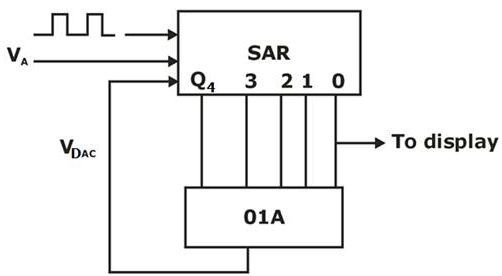
For the transfer function G(jω) = 6 + jω. The corresponding Nyquist plot for positive frequency has the form
Consider a random process as z(t) = x(t) + y(t)
Where x(t) and y(t) are two random processes with zero mean and they are individually WSS. The PSD of x(t) is Sx(f) and y(t) is Sy(f). Then PSD of z(t) is?
A digital circuit is designed in a way that it accept 3-bit number and generate it’s square. The circuit is to be designed using ROM with minimum hardware. Then the size of ROM is _______?
Eight voice signals, each limited to 4 kHz and sampled at Nyquist rate, are converted into binary PCM signal using 256 quantization levels. The bit transmission rate for the time-division multiplexed signal will be (in kbps)____
When a relatively small d.c. voltage is applied across a thin slice of Gallium Arsenide with thickness of order of few tenths of a micrometer and the voltage gradient across the slice is in excess of about 3300 V/cm, then the negative resistance will manifest itself. Which of the following devices operate based on the above phenomenon?
A signal of bandwidth 100 MHz and strength 10mW is transmitted through a transmitter through a cable that has 40 dB loss. If N0/2 = 0.5 × 10−20ω/Hz then the signal to noise ratio at the input of the receiver is
In a superheterodyne AM receiver, the image channel selectivity is determined by :
Consider a medium such that μ=μ0,ε = 81ε0,σ = 20S/m. The frequency at which the conduction current density is 10 times the displacement current density in magnitude is ____(GHz)
A 78 Ω lossless planar line was designed but did not meet a requirement. The fraction of the widths of strip (in %)should be added or removed to get the characteristic impedance of 75Ω is ___
|
25 docs|263 tests
|






